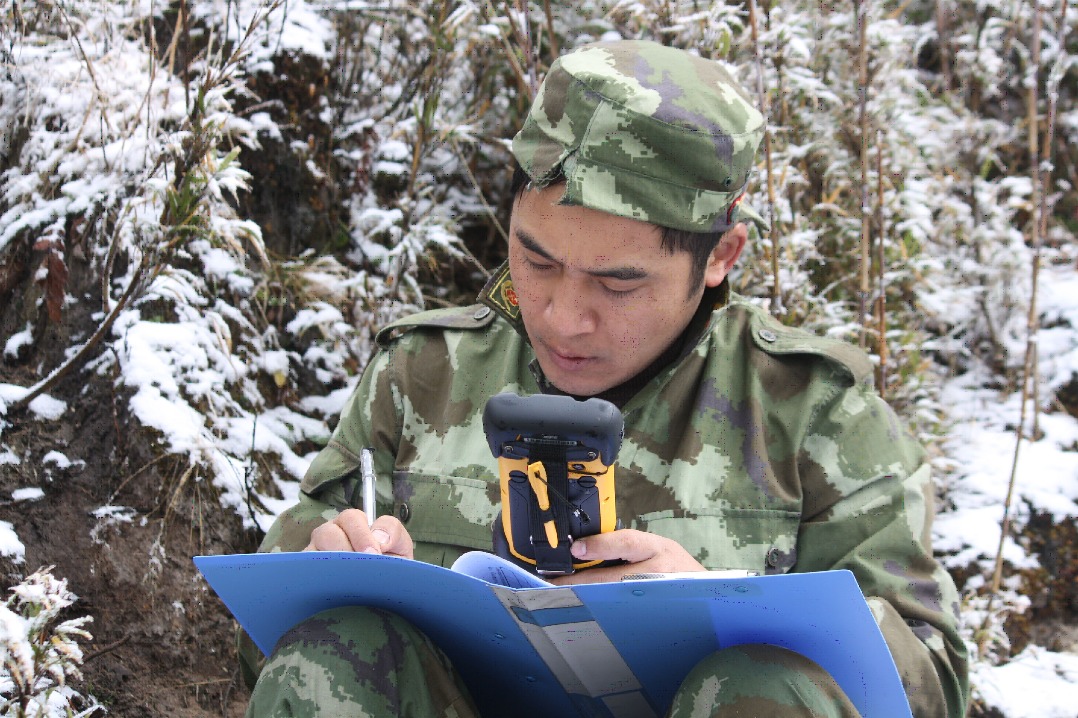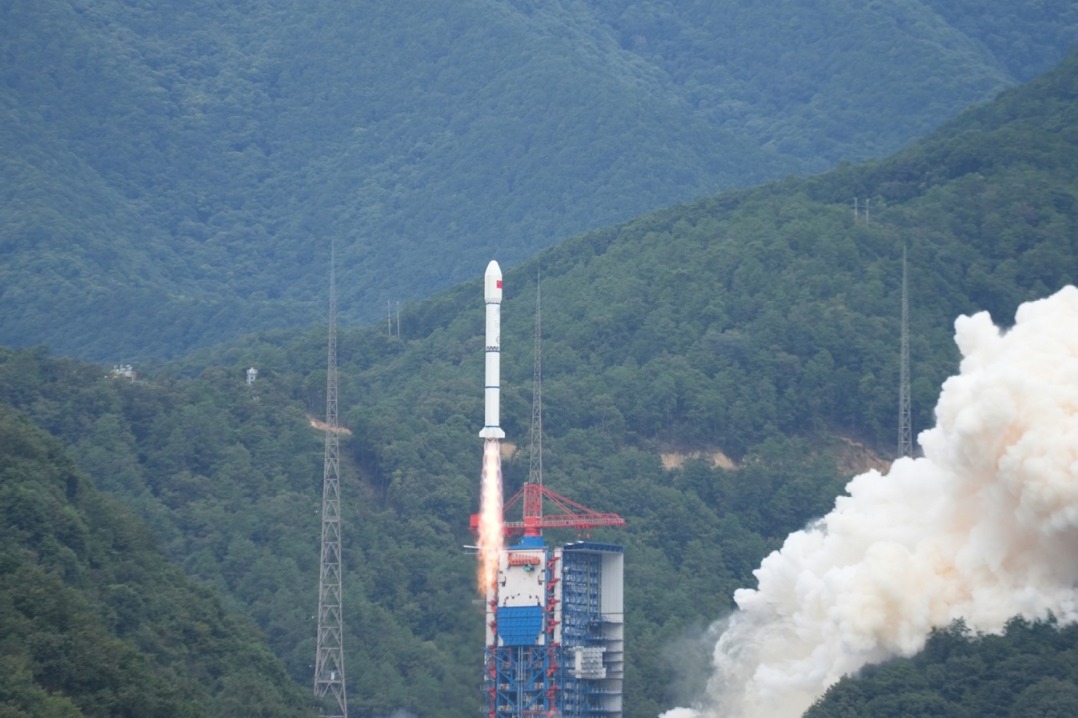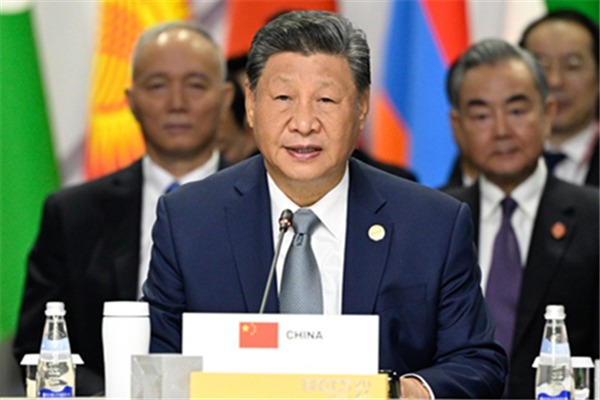China's top legislature starts standing committee session

BEIJING -- The Standing Committee of the 14th National People's Congress, China's top legislature, started its ninth session Tuesday to review multiple draft laws and law revisions.
The session's agenda includes reviewing a draft academic degrees law, a draft tariff law, a draft revision to the Law on National Defense Education, a draft amendment to the Accounting Law, a draft amendment to the Statistics Law, a draft energy law, a draft atomic energy law, and a draft revision to the Anti-Money Laundering Law, among other bills.
China mulls law revision to promote national defense education
BEIJING -- Chinese lawmakers on Tuesday started deliberating a draft revision to the Law on National Defense Education that is expected to enhance the national defense awareness of citizens.
The draft was submitted to an ongoing session of the National People's Congress Standing Committee for the first reading.
Consisting of 39 articles in six chapters, the draft clarifies the definition, guiding principles, leadership mechanism, and work responsibilities of national defense education.
The draft aims to build a national defense education system that connects various levels and types of schools, improving the goals, content, and methods of national defense education in primary schools, middle schools, and universities.
The draft also specifies the national defense literacy and capabilities that staff in state organs should possess. It regulates media and internet dissemination of national defense-related content and national defense education venues.
The National Defense Education Law was passed in 2001 and underwent a package modification in 2018 along with other laws.
China's draft amendment to accounting law submitted for first reading
BEIJING -- China's draft amendment to the accounting law was submitted to the Standing Committee of the National People's Congress for the first reading on Tuesday.
Chinese lawmakers deliberate draft atomic energy law
BEIJING -- Chinese lawmakers on Tuesday started deliberating a draft atomic energy law, with an aim to promote the sound and sustainable development of the atomic energy industry.
The draft was submitted to an on-going session of the Standing Committee of the National People's Congress, the national legislature, for a first reading.
Comprising 53 articles in eight chapters, the draft clarifies the principles and requirements for the peaceful development and utilization of atomic energy.
It also makes stipulations on promoting the research and development as well as the utilization of atomic energy, strengthening safety oversight and management, and improving international cooperation.
The draft law is expected to provide legal guarantee for advancing sci-tech progress in the field, enhancing the competitive edge of the industry, and increasing China's composite national strength.
China mulls intensifying statistical supervision through law amendment
BEIJING -- China is considering stepping up statistical supervision and increasing legal accountability to combat statistics fraud and other prominent issues through an amendment to the country's Statistics Law.
A draft amendment was submitted to the ongoing session of the Standing Committee of the National People's Congress, China's top legislature, on Tuesday.
To enhance statistical supervision, the draft revision stipulates establishing a systematic, efficient and legally binding statistical supervision system. It also aims to create synergy by coordinating statistical supervision with other forms of oversight.
Enterprises, public institutions and other organizations that refuse or delay the submission of statistical materials will face heavier fines. Additionally, those receiving administrative penalties for breaching this law will have such infractions recorded in their social credit system and publicly disclosed in accordance with relevant regulations, according to the draft.
Promulgated in 1983, the existing Statistics Law has gone through two revisions in 1996 and 2009, and played a key role in ensuring the orderly development of the country's statistical work.
China mulls improving energy exploitation, utilization through new legislation
BEIJING -- A draft energy law was tabled before Chinese lawmakers on Tuesday that is expected to improve the exploitation and utilization of energy.
The draft was submitted to an ongoing session of the Standing Committee of the National People's Congress, the national legislature, for deliberation.
Consisting of 69 articles in nine chapters, the draft makes stipulations on energy development in terms of exploitation and utilization, the energy market, energy reserves, emergency response and sci-tech innovation, among others.
China mulls new law to optimize academic degree awarding
BEIJING -- Chinese lawmakers on Tuesday began deliberations on a draft law regarding academic degrees that aims to optimize the conditions for awarding such degrees.
The draft was submitted to an ongoing session of the Standing Committee of the National People's Congress, the top legislature, for a second reading.
Compared to the draft submitted to the NPC Standing Committee for the first reading in August 2023, the new draft highlights the integration of education development with scientific technology and talent. It also includes provisions regarding overseas students and foreign educational institutions in this regard.
China mulls law on customs duties
BEIJING -- A draft law on customs duties was submitted to the ongoing session of the Standing Committee of the National People's Congress on Tuesday for a second reading.
Compared with the previous draft, the second draft explicitly identifies the entities responsible for tariff withholding in cross-border e-commerce. They include e-commerce platform operators, logistics companies and customs declaration enterprises that are engaged in retail imports, as well as individuals and entities mandated by laws and regulations to withhold tariff payments.
In addition, the draft refines the rules on the determination of goods' origin. Goods obtained entirely from one country or region are designated as originating from that specific place.
Goods produced in two or more countries or regions are considered to originate from the country or region where the final substantial transformation occurred.
China mulls revising anti-money laundering law
BEIJING -- Chinese lawmakers on Tuesday started deliberating a draft revision to the Anti-Money Laundering Law, with rules specifying anti-money laundering obligations for specific non-financial institutions.
The draft was submitted to an on-going session of the Standing Committee of the National People's Congress, the national legislature, for deliberation.
Comprising 62 articles in seven chapters, the new draft strengthened the supervision and management of anti-money laundering and improved provisions on anti-money laundering obligations.
The draft clarified the range of non-financial institutions involved and their anti-money laundering supervision obligations.
It also stipulated the obligations for financial institutions, requiring them to establish and improve the internal control mechanism for anti-money laundering, carry out customer due diligence and keep customer identity information materials and transaction records.
- China targets funeral industry corruption in new anti-graft campaign
- Beijing Daxing Airport to launch new international routes
- Parcel volume hits historic peak in China
- Giant panda conservation efforts lead to population growth
- Climate week event kicks off to promote Sino-French coopertation
- BRICS charts path at milestone summit, Xi offers five suggestions





































